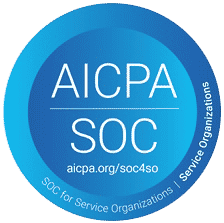This is part 2 of our compliance series. Part 1 explored union compliance.
Regulatory compliance in industrial environments encompasses a range of requirements, from safety regulations to fair labor standards. These government-mandated rules are designed to protect workers’ rights, ensure their safety, and maintain operational integrity. Non-compliance can result in hefty fines, legal challenges, and reputational damage. Indeavor provides a comprehensive solution that ensures compliance with various regulations at the point of scheduling, ensuring your operations run safely, smoothly, and within the bounds of the law.
Here’s why regulatory requirements must be embedded into your scheduling and workforce management processes.
Regulations Are Countless (and Complex)
In the industrial sector, regulatory requirements are not optional—but a necessity. Organizations are subject to a myriad of workforce management regulations, each designed to protect employees and ensure operational integrity. These regulations are not only numerous but also intricate, requiring meticulous attention to detail and robust risk management processes to maintain compliance.
Federal: FLSA’s Changes to Overtime Eligibility
The Fair Labor Standards Act (FLSA) sets federal standards for overtime pay, requiring employers to pay eligible employees overtime at a rate of one and a half times their regular pay for hours worked over 40 in a workweek. Recent changes to overtime eligibility have expanded the number of employees who qualify for overtime pay, increasing the complexity of compliance in regards to regulatory requirements.
As of July 1, 2024, the threshold increased from $684 to $844 per week ($43,888 / year). Starting January 1, 2025, the threshold will further increase to $1,128 per week ($58,656 / year). Failure to provide these eligible employees with overtime pay after 40 hours worked can lead to back pay awards, fines, and lawsuits. According to the Department of Labor, employers may face fines up to $1,000 for each violation. Willful violations can lead to criminal prosecution, with fines up to $10,000 and possible imprisonment for repeat offenses.
Industry: NRC’s 10 CFR Part 26 Fatigue Rule
The 10 CFR Part 26 fatigue rule outlined by the Nuclear Regulatory Commission (NRC) is a prime example of industry-specific regulations. Due to the hazardous nature of their work, 10 CFR Part 26 requires nuclear facility operators to manage worker fatigue through stringent work-hour controls to reduce the risk of accidents. It limits the number of hours personnel can work in a day and mandates minimum rest periods between shifts.
Workers must be limited to a maximum of 16 hours in a 24-hour period, 26 hours in a 48-hour period, and 72 hours in a 7-day period. A minimum 10-hour break is required between shifts, and individuals must have at least one extended break of 34 hours every nine days. Non-compliance can lead to severe penalties, including hefty fines (up to ~$303,000 per violation, per day), operational shutdowns, and damage to the facility’s license to operate.
State: Minnesota Earned Sick and Safe Time
State-specific labor laws add another layer of complexity to workforce management. For example, Minnesota’s Earned Sick and Safe Time (ESST) law requires employers to provide mandatory paid leave to employees. Eligible employees—that is, any employee who has worked in Minnesota a minimum of 80 hours in a year and is not an independent contractor—begin accruing ESST on their first day of employment. They earn one hour for every 30 hours worked, with the ability to accumulate at least 48 hours each year.
Employers must track accrual and usage meticulously to ensure compliance with regulatory requirements. Failure to adhere to this law can result in state-imposed fines, penalties, and potential lawsuits from employees seeking restitution. Recordkeeping violations alone will be subject to a penalty of up to $10,000 per failure.

End-to-End Regulation Compliance
Let’s dig deeper into how Indeavor’s risk management solution helps you manage all these federal, industry, and state-mandated regulatory requirements—automatically.
Reduce Financial Risk
Indeavor minimizes the risk of fines and penalties by ensuring compliance with complex labor regulations and industry standards through automated scheduling. The software is configured to adhere to a wide range of pre-built compliance rules, including maximum hours worked, overtime limitations, break requirements, and industry-specific regulations like fatigue management. Real-time notifications flag potential compliance violations during the scheduling process, allowing for immediate corrective actions. This proactive approach eliminates the risk of non-compliance and associated costs, providing peace of mind and financial protection.
Enhance Brand Reputation
By upholding ethical labor practices and social responsibility, Indeavor helps maintain a positive brand image and relationship with employees. Demonstrating a commitment to compliance and worker safety builds trust with key stakeholders like investors, customers, and the public. Showcasing a commitment to a compliant work environment fosters long-term business success.
Gain Peace of Mind
Automated compliance monitoring provides operational stability, freeing up time and resources to focus on strategic initiatives. Indeavor’s comprehensive compliance solution ensures adherence to all applicable regulatory requirements, minimizing the risk of errors and omissions. This proactive approach allows businesses to concentrate on growth and productivity without the constant worry of potential compliance issues. Knowing that your scheduling practices are compliant with federal, state, and industry regulatory requirements gives you the confidence to make strategic decisions and optimize operations.
Simplify Complexities
Indeavor breaks down regulatory requirements into actionable steps, automating routine compliance checks and reducing manual efforts. The scheduling logic builder allows for configuring custom rules based on specific labor agreements and geographic variations, ensuring tailored compliance solutions for your business. This simplifies the complexities of managing various regulations, making it easier for your team to follow and enforce compliance protocols. By translating complex regulations into clear, actionable steps, Indeavor streamlines compliance management and reduces administrative burdens
Automate Checks, Free Up Time
Indeavor’s automation allows teams to focus on high-value tasks, enhancing overall productivity and efficiency. Routine compliance checks are automated, freeing up valuable time for your team to engage in strategic initiatives like employee training and productivity improvements. This automation not only improves operational efficiency but also ensures continuous compliance monitoring, reducing the risk of non-compliance and associated penalties. By automating compliance tasks, Indeavor allows your team to concentrate on what matters most—running a successful and efficient operation.
Minimize Errors and Omissions
Proactive compliance measures reduce the risk of non-compliance, ensuring accurate scheduling and record-keeping. Indeavor’s software integrates with existing ERP, payroll, and HR systems, facilitating seamless data transfer and minimizing data entry errors. Real-time enforcement of scheduling data allows for proactive management of compliance risks, reducing the likelihood of errors and omissions. Improved audit trails simplify demonstrating compliance to regulatory bodies, providing transparency and accountability in your scheduling practices. This meticulous approach to compliance management minimizes the risk of costly fines and operational disruption.
It’s Time To Be More Proactive
It can be frustrating to feel like you’re managing both production and compliance simultaneously. Indeavor automates scheduling and ensures adherence to regulations, union contracts, and work rules. Our proactive risk management engine silently enforces regulations in real time, preventing problems before they arise, so you can focus on optimizing production and achieving your business goals with confidence.
Indeavor not only simplifies adherence to regulatory requirements but also supports a safe and productive work environment. Ensure fair and balanced scheduling practices that meet all federal, local, and industry requirements.







